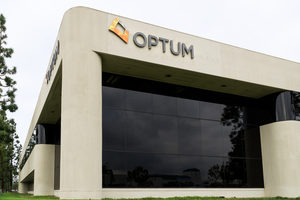Ohio Seeks to Recover Overcharges from OptumRx

After a 2018 investigation by the Ohio Bureau of Workers Compensation (BWC) of its prescription drug spending, the BWC pharmacy program manager, John Hanna, concluded that “we were being hosed.” The BWC had contracted with OptumRx to act as a pharmacy benefits manager (PBM). PBMs act as middlemen between drugmakers, pharmacies, and payors such as worker’s compensation programs, Medicaid, Medicare, and other insurers. Ohio’s investigation revealed that the state was paying more for prescription drugs than OptumRx was reimbursing the pharmacists who dispensed the prescriptions. After the 2018 investigation, BWC re-bid its PBM contract, adding new provisions aimed to limit such “spread pricing.”
Now, Ohio Attorney General Dave Yost has announced that his office is seeking repayment of nearly $16 million from OptumRx. Yost says this represents overcharges attributed to OptumRx’s failure to adhere to agreed discounts on generic drugs. Ohio alleges that the state’s contract with OptumRx required the PBM to pass on savings to the state when drug prices decreased, but OptumRx failed to do so in a timely manner. Yost has requested that OptumRx mediate, as required by the contract between the parties prior to litigation.
According to public reports, OptumRx also serves as PBM for one of Ohio’s Medicaid managed care plans; CVS Caremark serves as PBM for four other Ohio Medicaid managed care plans. Yost has said that his office is also looking at relationships between PBMs and other state entities.
Ohio’s actions are not surprising to those who know that PBMs are an increasingly common target of fraud investigations. Whistleblowers with knowledge of fraudulent activity by PBMs can play a critical role in such investigations, and may be eligible to receive an award under the False Claims Act. PBM fraud can arise in many ways, including when the PBM fails to pass savings from rebate arrangements and subsidies with manufacturers on to clients, develops formularies that favor more expensive drugs, or improperly switches drugs to either a generic or different brand name drugs instead of the drug prescribed. Drug manufacturers also participate in PBM fraud by, for example, providing price concessions on certain drugs in exchange for a PBM’s favorable coverage of the manufacturer’s drug.
Read More:
- Pharmaceutical Fraud
- State Enforcement Actions
- Whistleblower FAQs
- The Constantine Cannon Whistleblower Team
Tagged in: FCA State, Medicaid, Other Government Health Programs, Pharma Fraud,